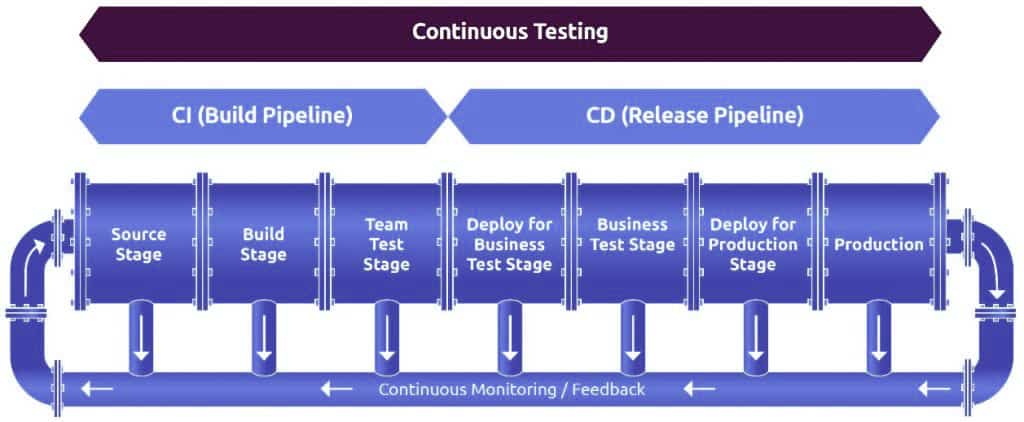When DevOps arrived onto the technology platform, industry experts opined that it is going to revolutionize the IT world. However, businesses were slow to embrace this methodology. The reason was that many businesses could not understand what DevOps is actually about. As it is not a tool or a technology, people derive their own definitions, processes and methods. DevOps is a methodology that integrates Development and Operations teams to work as a single entity right through the product lifecycle to deliver quality software faster. According to Research Dive, the global DevOps market was valued at $4.46 billion in 2020. This value is expected to reach $23.36 billion by 2027, growing at a CAGR of 22.9% during 2020-2027.
Here is how DevOps helps your company to grow:
Redefining Organizational Culture
While DevOps started off as a combination of development and operations teams, it has now evolved to include everyone involved in the product lifecycle. DevOps brings cross-functional teams into the picture comprising people from design, development, QA, operations, security etc. It facilitates seamless collaboration and trust between teams, breaking silos. With rightly aligned priorities and shared goals, every member of the team gains clear visibility into the progress of the project, resulting in a quality product delivered in time. It gives you better control over tools, processes and projects.
Redefining Technical Processes
Faster time to market is a key requirement to stay in the competition in today’s fast-paced world. However, speed shouldn’t kill the quality. DevOps allows you to deliver faster while not compromising on quality. Continuous Integration / Continuous Delivery (CI/CD) is a notable feature of DevOps.
In a traditional waterfall software development model, developers write the code first which is then sent to the testing team. If there are errors, the code is returned to developers for corrections. When the code successfully passes the test, it is sent to the staging environment and then deployed to production. To deliver an update, the product has to go through the entire process again.
With the advent of Microservices and agile methodologies, developers started developing the software as modular independent services in smaller and incremental cycles. DevOps helps businesses to manage microservices, SOA and agile environments in a better way. It integrates different disparate systems to work as a cohesive unit. It allows you to build a CI/CD pipeline and automate the entire process.

In this CI/CD pipeline, coders write the code and commit it to a version control system that acts as a central repository. When a change is detected, the CI server automatically runs the builds. Passed builds are moved to the deployment segment or the image repository. The automation deployment tool picks the artifacts from there are deploys them to production. There is a continuous monitoring tool that offers feedback from which you can gain clear insights into the performance of the product. By using value stream mapping, you can quickly identify bottlenecks and optimize every process. Response times get quicker too. With continuous integration, continuous testing, continuous deployment and continuous feedback, DevOps enables you to quickly deliver quality software.
Jenkins, Gitlab, CircleCI, TeamCity and Bamboo are some of the best CI tools that help you to automate and orchestrate the entire software development product lifecycle.
Redefining Business Processes
DevOps brings a cultural shift across the organization. Now, developers understand the challenges faced by the Ops guys and develop the code accordingly. Similarly, operations guys are aware of how the code is being developed and how it performs in production at an early stage. As each member is responsible for the overall quality of the product, every team equally cares for the efficient execution of tasks of other teams. They motivate and encourage other members wherever possible. With a cross-functional team working together, employees are cross-trained and up-skilled as well. It not only brings more value to the organization but also delivers more value to your customers.
Innovation is a key requirement to stay ahead of the competition. DevOps gives developers extra time to experiment and create new products or tweak existing products. With automated testing and automated security built into the pipeline, you don’t have to worry about breaking anything. Without disrupting the project, developers can validate the feasibility of ideas and introduce innovation into business processes. It also helps them learn customer requirements and user experiences in a better way and meet/exceed their expectations. Enhanced customer satisfaction helps you retain your customers and gain new referrals too.
The Bottom Line
DevOps benefits are equally distributed across the business, technical or cultural segments of an organization. A good DevOps strategy helps an organization sustainably grow in all aspects of the business. However, streamlining an end-to-end delivery pipeline is a challenge. Once the right DevOps strategy is designed, you can fully leverage all these benefits.
The key here is choosing the right DevOps partner!






